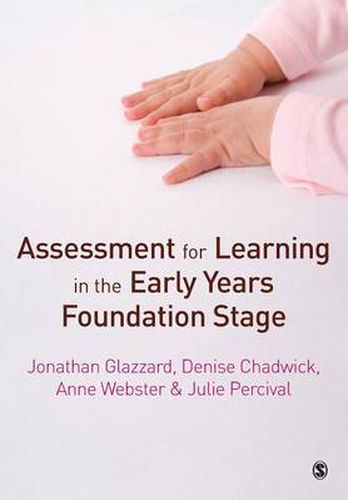Readings Newsletter
Become a Readings Member to make your shopping experience even easier.
Sign in or sign up for free!
You’re not far away from qualifying for FREE standard shipping within Australia
You’ve qualified for FREE standard shipping within Australia
The cart is loading…






Are you struggling with the complexities of assessment? Demystifying the process of assessment for learning in the Early Years Foundation Stage (EYFS), this book explains in straightforward language how to put principles into practice. Looking at models of assessment, the book draws heavily on examples of real assessments from practice, and the relevant theory is explained in context. Lessons from research are applied to best practice, and issues covered include: self-assessment and peer assessment; collecting evidence as a basis for making judgements; how to track the child’s development in the six areas of learning; using assessment to inform future planning; summative assessment in the EYFS; involving parents and carers in the assessment process; using assessment to support children with additional needs; and moderation. Throughout the book there are plenty of practical examples from a range of early years settings, with case studies for the Birth to Five age range. Students, teachers, teaching assistants and those working towards Early Years Professional Status (EYPS) will find this an invaluable guide.
$9.00 standard shipping within Australia
FREE standard shipping within Australia for orders over $100.00
Express & International shipping calculated at checkout
Are you struggling with the complexities of assessment? Demystifying the process of assessment for learning in the Early Years Foundation Stage (EYFS), this book explains in straightforward language how to put principles into practice. Looking at models of assessment, the book draws heavily on examples of real assessments from practice, and the relevant theory is explained in context. Lessons from research are applied to best practice, and issues covered include: self-assessment and peer assessment; collecting evidence as a basis for making judgements; how to track the child’s development in the six areas of learning; using assessment to inform future planning; summative assessment in the EYFS; involving parents and carers in the assessment process; using assessment to support children with additional needs; and moderation. Throughout the book there are plenty of practical examples from a range of early years settings, with case studies for the Birth to Five age range. Students, teachers, teaching assistants and those working towards Early Years Professional Status (EYPS) will find this an invaluable guide.